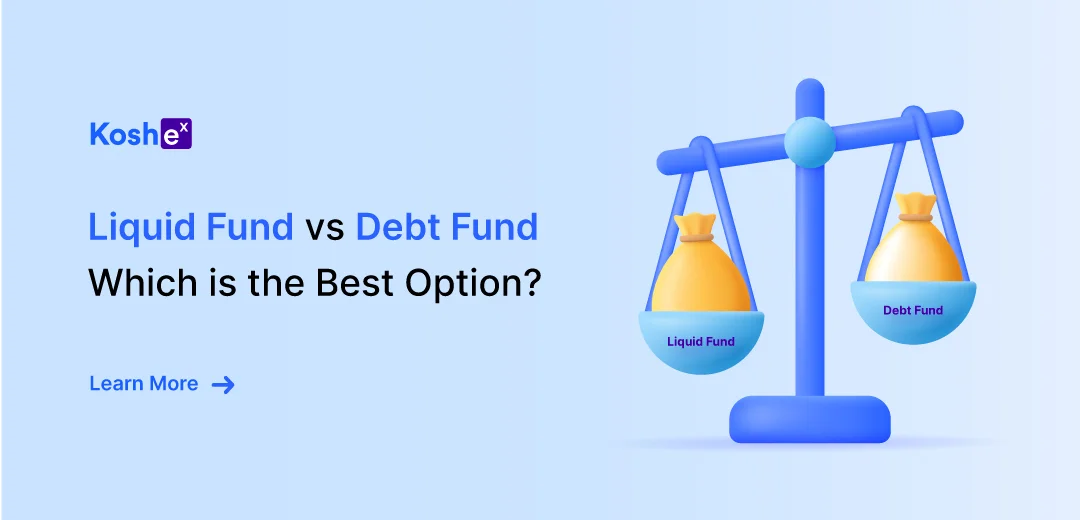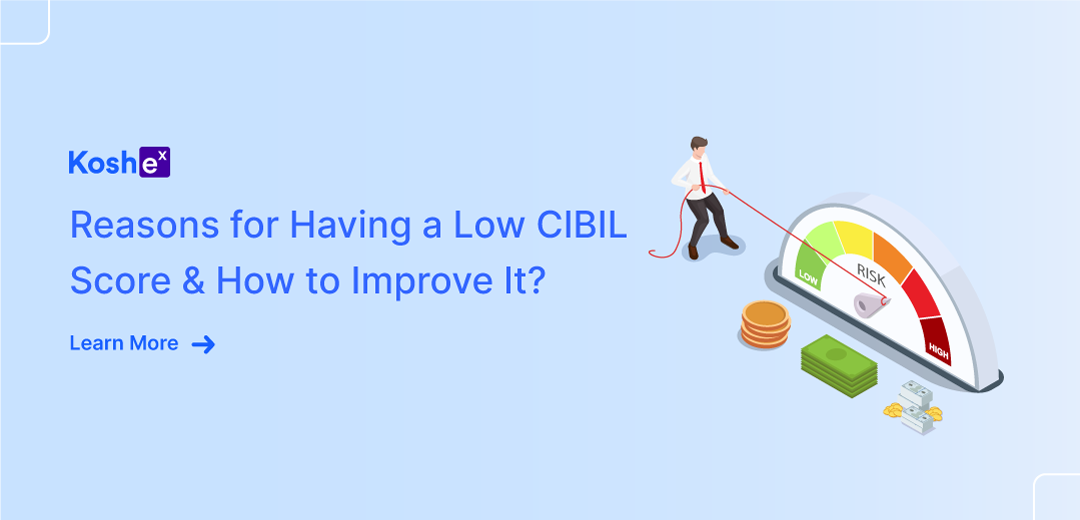Many people often think that liquid funds and debt funds are two different types of mutual funds. However, that’s not true.
In this guide, we are going to learn in detail about liquid mutual funds and debt mutual funds and find out which one would be the right fit for your investment portfolio.
What Are Debt Mutual Funds?
Debt mutual funds are mutual fund schemes that invest predominantly in fixed income-generating securities like Commercial Papers (CP), Certificates of Deposit (CD), Corporate Bonds, T-Bills, government securities, and other money market instruments.
These instruments have a fixed maturity date and interest rate, which the buyers could earn until the maturity of the security. Debt mutual funds are considered to be less volatile than equity funds.
There are different types of debt funds and they are Overnight Funds, Liquid Funds, Ultra-Short Duration Funds, Money Market Funds, Short-Duration Funds, Medium Duration Funds, Corporate Bond Funds, Credit Risk Funds, Banking & PSU (Public Sector Undertaking) Funds, Dynamic Bond Fund, Gilt Funds, Fixed Maturity Plans.
The above types show how liquid funds are not different from debt mutual funds but they are a type of debt fund. So, let’s take a closer look at liquid mutual funds.
What Are Liquid Mutual Funds?
Liquid mutual funds are debt funds that invest in fixed-income securities such as certificates of deposit, treasury bills, commercial papers, and other debt securities that mature within 91 days.
Liquid funds do not come with a lock-in period. These funds carry less risk and are considered to be the least risky among all classes of debt funds.
The reason they are less risky is that they mostly invest in high-quality fixed-income securities that are going to mature soon. Hence, these funds are suitable for risk-averse investors.
Unlike some other funds, the Net Asset Value (NAV) of a liquid fund doesn’t fluctuate much and that’s why low duration high-quality securities make up these funds.
If you wish to withdraw your investments from a liquid fund, the withdrawals are typically processed in 24 hours.
The Difference Between Debt Mutual Funds & Liquid Mutual Funds
The below parameters show the major differences between debt funds and liquid funds.
Maturity Profile Of Underlying Assets
One of the major factors that differentiate a liquid fund and a debt fund is its underlying portfolio. The fixed-income securities forming part of a liquid fund’s portfolio have a maximum maturity profile of less than or equal to 91 days. In addition, these securities are generally held until maturity.
However, this restriction does not apply to other debt funds. The average maturity of debt funds differs based on the fund category.
Thus, the maturity profile of the underlying securities of the debt fund portfolio can be a combination of both short and long-term instruments based on the fund’s underlying objective.
Returns
Liquid funds tend to give consistent returns since the investment portfolio mainly consists of fixed income-generating securities with shorter maturity.
The returns of liquid funds are less volatile due to the shorter maturity of the portfolio. On the other hand, the returns from other debt funds may fluctuate less to more depending on portfolio maturity, changes in interest rates, and the credit profile of the investment portfolio.
Investment Risk
Compared to debt mutual funds, the risk component in liquid funds is very low. The reason behind the low risk is the lower portfolio maturity of these funds.
Hence, the interest rate risk and credit risk attached to liquid funds are also minimum. Also, the securities are held until the end of maturity instead of trading. On the other hand, debt funds carry higher interest rate risk and credit risk.
Taxation
Since liquid funds are a part of debt funds, the taxation of liquid funds is the same as debt funds. If you redeem your investments within three years from the date of purchase, you would have to pay the short-term capital gain tax.
If you redeem your investments after three years from the date of purchase, you would have to pay long-term capital gains tax.
The short-term capital gain is taxable as per the individual’s regular tax slab while the long-term capital gain is taxable at 20% with indexation benefits.
Liquidity
Liquid funds offer better liquidity when compared to other mutual fund schemes. When you redeem your investments from liquid funds, the transaction will be processed in a shorter turnaround time.
Your amount will be transferred to your bank account on the next working day if the transaction has been received before the cut-off time.
On the other hand, when you redeem your investments from other debt funds, the redemption proceeds will take some time to hit your account, usually T+2 or T+3 days (T – Transaction Day). Hence, investors may receive redemptions from liquid funds 1 or 2 days in advance compared to other debt funds.
NAV Calculation
For liquid mutual funds, the NAV is calculated for all 365 days while for debt funds, the NAV is calculated only on business days.
Final Thoughts…
Liquid mutual funds and debt mutual funds are excellent investment instruments for those who are looking for low-risk investment options and want to earn higher returns.
If you are someone who wants to park their idle money, liquid funds would be an ideal investment choice for you. For everyone who wants to stay invested for a short period of time and is willing to take a little bit of risk, then the other debt mutual funds are for you.
There are several types of mutual funds that are guaranteed to help you achieve your life goals and suit your risk tolerance and investment horizon.
All you need to do is check them out at Koshex. Create an account with Koshex today and see all the mutual funds that we offer.
You can use our ‘Goal Planning’ feature to see what kind of investment solutions will suit your risk tolerance and life goals.
All this can be done for free and the account creation process takes only 2 minutes. You don’t have to worry about any paperwork because everything can be done completely online because we believe in convenience.
Sign up with Koshex today and start your best investing journey!









Leave a Comment